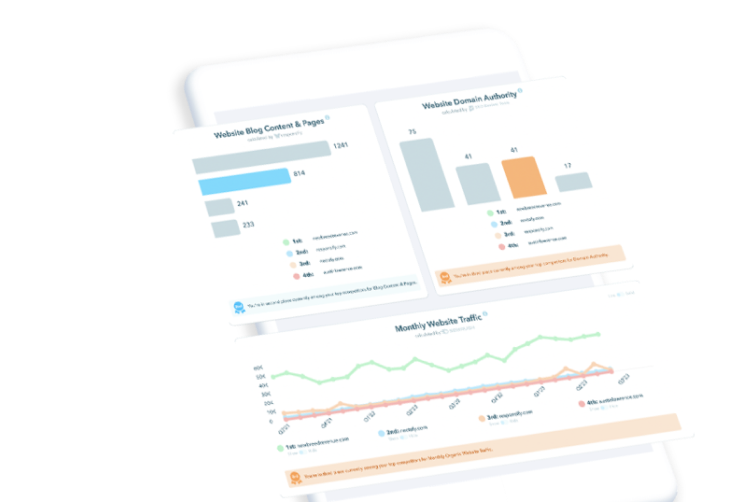 585 Views
585 Views  4 min read
4 min readEvery Patient Engagement and Education salesperson wants to increase their sales. In the past, and in some cases today, improving sales meant spending a lot of money on ads and calling as many people as possible, whether they were good leads or not. But today’s buyer is much savvier, and decision makers in healthcare are no exception. According to a report by the Earnest Agency, 81% of clients begin their buying process by researching online first. As a result, the best method to get their attention is by giving them valuable and information content that they are looking for, when they are looking for it. This strategy is called Inbound. Here are six great Inbound strategies to increase your Patient Engagement and Education sales:
The first step to take when enhancing your sales is to establish who you are targeting. A Buyer Persona is an imaginary personality that mirrors your optimal customer. For example, you could have “Clinician Carla,” “Private Practitioner Peter,” or “Medical Director Dan,” all who would certainly want your Patient Engagement and Education product and services. Do some research on their responsibilities in their company, their objectives, and their obstacles. As soon as you have built your Buyer Personas, it will be easier to target them effectively and boost your sales.
After you create your Buyer Personas, you need to produce regular content that solves your buyer personas’ goals and needs. It is also important that the content is relevant for leads in all phases (Awareness, Consideration, and Decision) of the Buyer’s Journey. You can find out more on the needs of each phase by doing research, calling your existing clients, and checking in industry journals and publications. You can also sign up for relevant discussion forums to observe and find trending conversations. Pick one of the most prominent subjects and develop a timetable to make content for every phase. The content can be anything from social media posts, whitepapers, ebooks, and even reports. Producing content that targets the appropriate market will develop you as an authority in the Patient Engagement and Education market and build trust with your customers.
Your Patient Engagement and Education business website will often be the very first point of contact for leads trying to connect with your company. You need to make sure that your site gives visitors a solid impression and a good User Experience. It also needs to have responsive design, as users will be viewing it from desktop computers and mobile devices. Use fonts and colors that will make your message easy to read. Make sure the navigation is straightforward so users can browse easily. Also, make sure the pages load quickly. Having an expertly-developed site will help keep visitors coming back and will improve your chances of making more sales.
It doesn’t matter if you have a great website if no one knows it exists. Search Engine Optimization (SEO) is one of the best ways to make your site more noticeable online. The first thing you should do is research keywords and phrases that you want ranked on search engines. Make sure these keywords show up in your meta summaries, blogs, page URLs, headers, and alt photo messages. Internal linking (linking to other pages and articles on your site) is also great for SEO. Using all of these methods will help improve your search engine position, creating more traffic to your site and increasing your lead conversions.
You can use social media to monitor discussions about the Patient Engagement and Education market, your competition, and your brand name. Leveraging social media will help provide you with relevant topics you could write about on your blog. You could also engage with your target market right on social media, which will position you as an expert in the field. Share engaging images and stories associated with your brand name and leave links to your landing pages. Also, whenever you post new content to your site, share it with your followers. When your posts are liked and shared, you will bring in more leads. Some social networks also allow you to include a “Buy” button, which will let potential customers make a purchase without going to the site. According to Sprout Social, 70% of customers look at social media before making a buying choice.
Every once in awhile, you need to go back and look at your strategies. This will help provide you a better idea on what is working and what isn’t. For instance, you could find out how people are finding your site. Who is coming from social media? Who is coming from email marketing? You should also track conversions. How many site visitors turn into leads, and then clients? The good news is there are services like Hubspot CRM that will help you with this.
Do you feel ready to get started on your Inbound Sales journey? It definitely takes some research, planning, and experimentation when you start. But when you improve your sales process based on the customer’s buyer’s journey, sending them the right content at the right time, you will be glad you took the time. We’ve helped many skilled salespeople integrate Inbound right into their sales process. Do not hesitate to book your totally free strategy session to help you improve your current processes and take your sales techniques to the next level!
